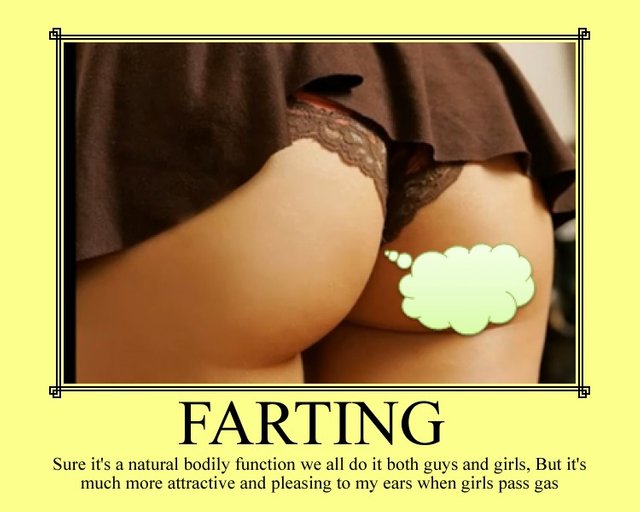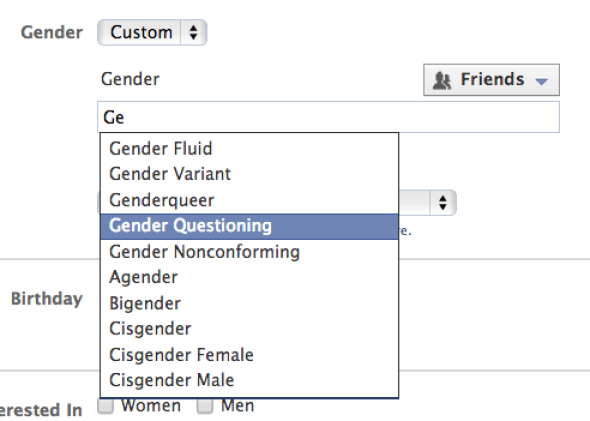“I just want to be normal,” I’ve heard a thousand times. “Is it normal to get turned on by girls farting?” “My penis is 5.365” long, and 4.268” in width. Is this normal?” “What’s a normal amount of sex to have? I want it every day, is that too much?”

I’ll never forget where I was standing when I first learned of fart porn. In the college bar, the one that serves $1 PBR’s (a perfect fit for every hipster student’s budget, not that I was ever a hipster), I yelled over the music, “You make WHAT for a living?” The guy that would become my husband and the father of my child had prefaced his response with, “Well, since you study sexuality for a living, you’ll probably think this is interesting.” Did I ever. Our first dates included long walks while eating Dairy Queen, discussing important matters such as “Why are most porn stars hairless down there? Do they use razors, or are they waxing?” and “What turns someone on about watching a woman fart?” and “Where on earth do you find women willing to do this?” My brain was bursting with a desire to understand an arena of life I’d previously only seen written about by radical feminists intent on coupling porn with objectification and inherent exploitation. Exploitation by farting… now that was a head scratcher.
Within 1 year, I couldn’t help myself, and hopped on board the fart train along with him. It wasn’t JUST farting, though no matter what else I filmed, my core fan base couldn’t get enough toots. I entered the world of fetish porn, a FEMINIST you’d elsewhere see running gender studies reading groups, writing grant applications and presenting at academic conferences.

I was inspired by Michael Warner’s book - The Trouble With Normal: Sex, Ethics and the Politics of Queer Life - to take his queer philosophy beyond the world of LGBTQ. Warner argues that there is a distinction between culturally palatable LGBT activism, and the day to day life of many who fall outside the bounds of heteronormativity - a term coined to describe the ‘husband wife two kids and a picket fence’ stereotypical lifestyle. Sure, perhaps we can accept those gays, if only they shack up like the “rest of us” - buy a house, adopt a kid and join the PTA. “We’re just like you,” the discourse goes, “but in a different shade. Nothing to fear here!” Meanwhile, queer radicals seek to push these taken for granted boundaries. Why must we all assimilate to what’s seem as NORMAL to be accepted? Why can’t we expand our definition of who and what are deemed worthy? All good questions, but an academic theory and real life are quite different. VERY different, in fact. The current sociocultural debates over gender identity (Are there “really” 58 genders, as Facebook now allows?) and transgenderism (Can a 5 year-old be truly transgender?) are but two examples.

Here’s a not-so-secret secret: [almost] everyone wants to be loved. When you get down to it, many MANY of our behaviors are attempts at proving ourselves, at garnering attention, at showing what we’re made of…in often desperate, typically subconscious, efforts at being seen, heard and held by another. AKA, to be loved. What I hear in “Am I normal?” is more accurately, “These ‘facts’ about me being true, am I worthy of love?”
Is it normal to get turned on by girls farting? Well, we can define ‘normal’ in a couple different ways. First, cultural norms are what we’ve decided as a society is normal (with the assumption that those norms are inherently good). For instance, when it comes to women’s bodies, in the United States we might think the norm is to be somewhere between a size 2 and 16, based on what you see in a typical woman’s section of any department store. Though if we simultaneously consider media images, we all know its “better” to be at the lower end of that scale. Contrast this cultural norm to a statistical one - a measurement of what's actually happening right now in the world. According to the National Health and Nutrition Examination Survey conducted in 2013-2014 conducted by the National Institutes of Health - over 2/3 men and women are considered overweight or obese using BMI (body mass index) as a measurement. Now, we can quibble over whether the BMI is the best way to measure size, and whether it is directly correlated with health problems, but the distinction here is clear. Our social norms for women’s bodies are vastly different from our statistical norms at current measurement.
But when it comes to women farting, the answer to both definitions of ‘normal’ is a resounding no. To my knowledge, there is not a single culture in the world the venerates female flatulence on the path toward sexual arousal. Nor is the fart fetish statistically normal. During the era I performed as a fetish model, there was somewhere in the range of 15,000 Google searches per month using keywords related to “girls farting” and “fart porn.” So while a fart lover may not be in the norm, they are certainly not alone either.
But is a fart fetishist worthy of love? You may be wondering, “Well, wait, who exactly has a fart fetish? Maybe there’s something uniquely different or strange about these folks!” Science has yet to deem this an important research question, but from my own survey of website members and years of online interaction, I would say they’re just like any other “typical” guy. They see themselves as otherwise “normal” (in that cultural sense), enjoy movies, comedy and sports, make an average income and many have wives and girlfriends (some of whom know about the fetish, many of whom don’t). So to answer the question, yes, fart fetishists are just as worthy of love as anyone else on the street. I mean many parents of serial killers still love their children. Though let’s be real, an erection (or vaginal tightness and/or lubrication, for the rare female fan) at a woman passing gas is quite different from murder in cold blood.
In “I just want to be normal,” I hear “I just want to be loved and accepted.” Here’s the funny thing about love - it blossoms under trust. Intimacy, that deep closeness most of us crave, is fostered by a mutual give and take of vulnerability. Grab any Brene Brown book (or better yet, watch her talk below!) - her excellent work on wholeheartedness and vulnerability not only sounds true but is scientifically validated. To really be loved for who we are, we must let down the curtain and show what’s happening back stage - at least sometimes. And herein lies the fear, and the desire for normality. Because if you’re like me, or pretty much any human I’ve run into, there’s some stuff behind the curtain we’d rather not be seen, we’d rather not be judged by, and we’d really rather hide. Here, in the shadows, is not only where one’s true power lies (more on that in the future), but the only means through which true love will grow.

(Source: OpenHeartedRebel.com)
I am not saying to broadcast your fetish via your social media channels, though if that sounds like a good idea to you go for it. What I’m saying is that we’re focusing on the wrong thing. Whether you’re into girls farting, or you put mayonnaise on your grilled cheese (EW), there’s something about you that’s not, well, NORMAL (in any sense). Not only is it okay, but its the most real thing about you, because chances are you’ve tried to change it and it didn’t work. Because things simply don’t work like that. Change is possible, yes, but only when you let go of the NEED to change it. According to the internet (since I haven’t had time to review his personal writings), Albert Einstein once said, “No problem can be solved from the same level of consciousness that created it.” Level yourself up and learn to love what you got overall, and your sexual interests may change - OR MAYBE THEY WON’T - but when you come to acceptance of what is, it doesn’t matter if your personal oddity is there or not. The best question is not, “Am I normal?” but rather, “How can I learn to be okay with who I am?”

(Source: XKCD.com)
And when you’re okay with you, somehow you find other people who are okay with you. Because that’s the real goal, now isn’t it?
So glad to see you here, dear! I love dorking out with you on sex stuff! Xx!
Downvoting a post can decrease pending rewards and make it less visible. Common reasons:
Submit
The Brene Brown talk mentioned in the post above; I did not know posts could not be edited once posted! Live and learn :)
https://www.ted.com/talks/brene_brown_on_vulnerability
Downvoting a post can decrease pending rewards and make it less visible. Common reasons:
Submit